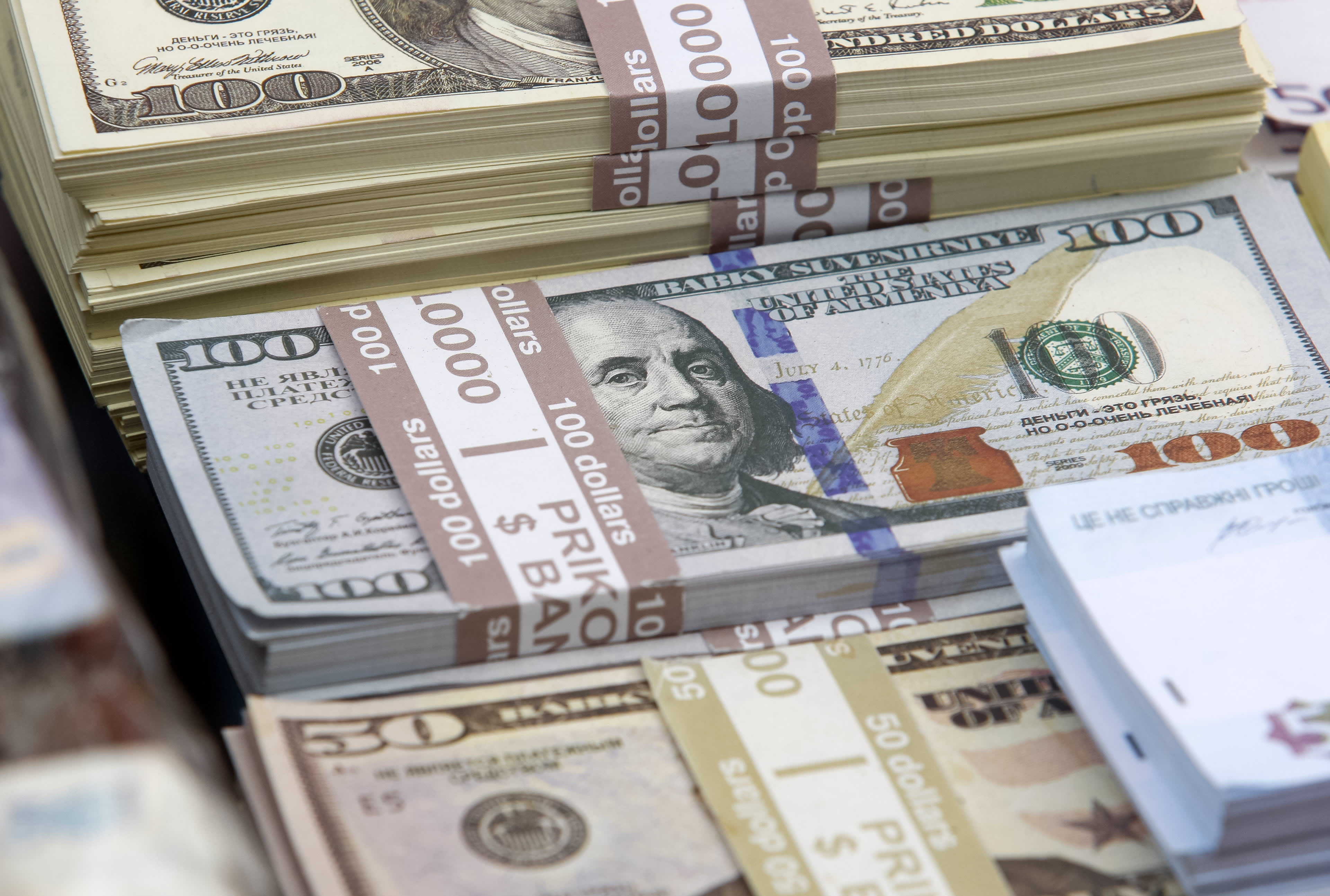The dollar fell on Monday, losing some of the gains it had made from Friday's U.S. jobs data, as currency markets pulled back on their initial reaction.
Higher-than-expected U.S. employment figures last week saw the dollar strengthen against major peers. The data was seen by traders as an indication that the U.S. Federal Reserve could raise interest rates more aggressively to combat inflation.
But this move cooled in early European trade on Monday, with the dollar index slipping to 106.25 by 0750 GMT, down 0.4% on the day, compared with Friday's 10-day high of 106.930 .
Traders were pricing in a roughly 69% chance of the Fed raising rates by 75 basis points at its September meeting, according to Refinitiv data .
Fed Governor Michelle Bowman said on Saturday that the Fed should consider more 75 bps hikes at coming meetings to bring inflation back down.
"The U.S. dollar has been supported by the combination of stronger U.S. economic data releases and hawkish comments from regional Fed presidents that have encouraged market participants to push back expectations for a dovish policy pivot from Fed," wrote MUFG currency analysts Derek Halpenny and Lee Hardman in a note to clients.
"We believe there is room for the U.S. dollar to rebound further in the near-term, and have recommended a new long USD/CAD trade idea to reflect our bullish outlook for the U.S. dollar."
Markets are now waiting for U.S. inflation data on Wednesday to give further clues about the health of the world's largest economy. Analysts polled by Reuters expect annual inflation eased to 8.7% in July from 9.1% previously.
RBC analysts said in a client note that the market had reached an equilibrium between "inflation" and "growth slow down" as investment themes, and that they would wait for more data releases before taking a view on the market's next direction.
The Australian dollar recovered following Friday's losses. At 0751 GMT it was up 0.9% on the day at $0.697 .
The New Zealand dollar was up 0.4% at $0.627 .
The dollar fell versus the yen, with the pair changing hands at 134.945 .
Euro zone bond yields fell back down after having gained following the jobs data on Friday. Italian bonds appeared to brush off a decision by Moody's to lower Italy's ratings outlook.
The euro was up 0.2% at $1.02095 .
"If quiet summer markets prompt renewed interest in the carry trade, the euro will probably be one of the preferred funding currencies," said ING FX analyst Chris Turner in a client note.
The British pound was up 0.4% at $1.2118 .
Foreign Secretary Liz Truss - who is expected to replace Boris Johnson as prime minister next month - has said she plans to hold a review of the Bank of England's mandate










